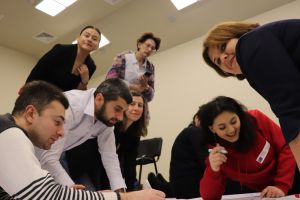
New avenues to shape youth policy in Azerbaijan as EU4Youth programme concludes latest five-year cycle
Young people in Azerbaijan are showing a growing interest in citizenship education, community engagement and youth participation in decision-making processes. This is just one of the impacts as the EU4Youth programme closes its latest five-year cycle, and draws conclusions from the data collected over the period of its activity in Azerbaijan.
As recorded in the programme’s yearly reports, EU4Youth actions in Azerbaijan have included direct training and mentoring, matchmaking between employees and employers, grants to new businesses, policy to create new jobs and improve skills, tailoring education to the market, and local initiatives to support the most vulnerable young people.
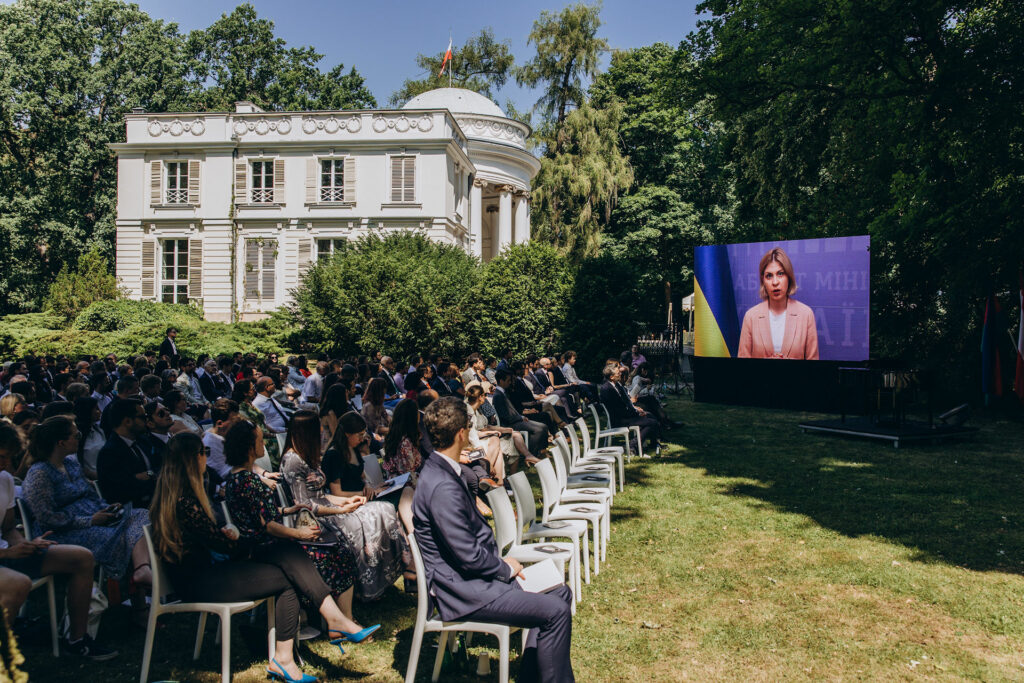
Despite the effects of the ongoing conflict between Azerbaijan and Armenia, the impact of the Russian invasion of Ukraine and the broader political instability in the Eastern Partnership (EaP) region, as well as the COVID-19 pandemic, evidence shows that EU4Youth has been able to make a positive impact on young Azerbaijanis’ education and employability, entrepreneurship and employment, and their engagement and empowerment.
Education and employability
Two EU4Youth scholarships were offered by the College of Europe for the 2021-2022 and 2022-2023 academic years to outstanding young students from Azerbaijan. Elvin from Azerbaijan was among the first ten students from the Eastern Partnership countries, who received the scholarships and finished their studies at the College of Europe in Natolin in June 2022. This became possible through the EU4Youth phase III Youth Employment and Entrepreneurship programme, which receives funding from the EU and is co-financed by the Ministry of Foreign Affairs of Lithuania.
This is one of the ways in which EU4Youth has been helping Eastern Partnership youth to learn about European politics and governance and foster multi-cultural learning. Between 2021 and 2025, the €1.1 million programme is supporting cross-cultural postgraduate studies, benefitting an estimated 75 young people from the Eastern partner countries.
Entrepreneurship and employment
The first results under the Youth Employment and Entrepreneurship project look very promising, triggering active engagement and enthusiasm among stakeholders in the different partner countries, which is key to building strong Youth Employment Partnerships.

In Azerbaijan alone, an impressive array of 47 stakeholders have been actively engaged in youth employment partnership events, which have been a success since their inception in 2020. Among them are public institutions dealing with youth issues, youth organisations, selected youth and education practitioners and their social partners, representatives from the EU Delegation, EU Member State representatives, youth policy experts and researchers, EU bilateral and regional projects beneficiaries, and selected international development partners.
Engagement and empowerment
In Azerbaijan, the EU4Youth: Youth Engagement Roadmaps project conducted 28 events that brought policy makers and young people together throughout 2022. The aim of this work is to help develop policy and legislative recommendations that enhance youth education, entrepreneurship, and participation in public life. It is remarkable that 526 young individuals chose to participate in these events, with more than half of the attendees being women.
Furthermore, the EU4Youth Alumni Network has played a vital role in fostering the inclusion of disadvantaged young people by bringing together former participants of EU-sponsored programmes. Within the 2020-2022 final cycles, 25 alumni from Azerbaijan organised over 140 activities across various initiatives, benefiting nearly 300 individuals.
One remarkable example involves two dedicated young activists from Azerbaijan who decided to address the issue of misinformation and prejudice surrounding individuals with Down’s syndrome (DS). Through their innovative 46+1 project, Alishir and Sabina worked directly with young individuals with DS, harnessing their educational strengths to combat discrimination and create opportunities for growth. Alishir says: “In my opinion, people with DS can be more active in society in the future in Azerbaijan. The availability of vocational training opportunities for people with DS will greatly contribute to this. I hope that we will soon see people with DS working in fields that are important to society.”
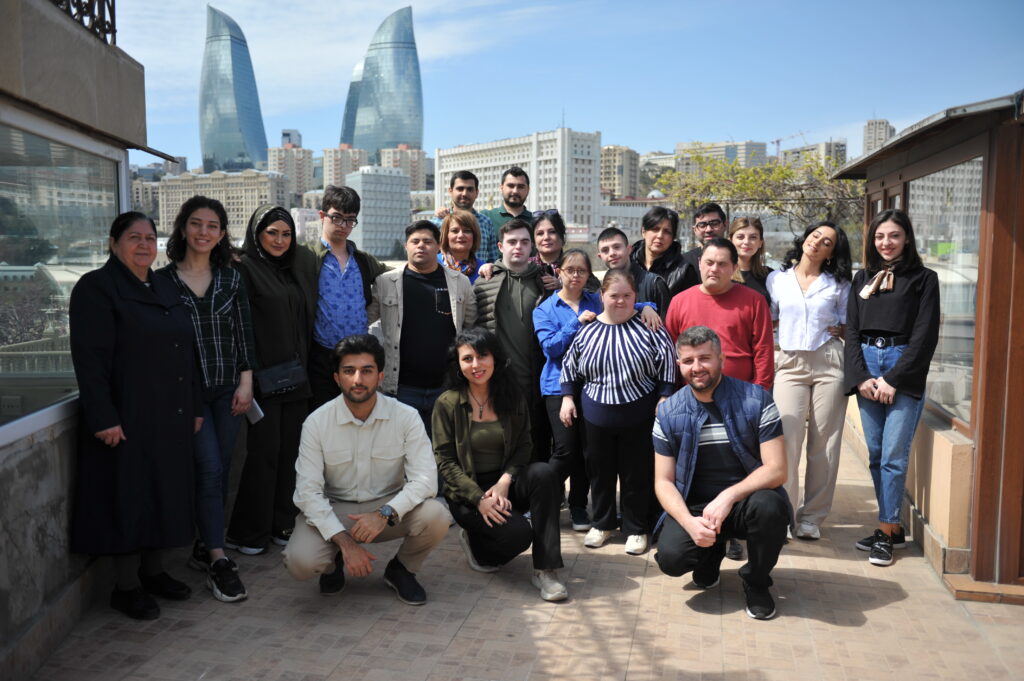
Youth policy landscape
The youth sector in Azerbaijan is expecting the third State Programme on Youth (2023-2027). Young people in the country are concerned about the lack of decent employment opportunities and quality education, gender equality and youth participation in decision-making processes. They have a growing interest in citizenship education and community engagement resulting in new community-building initiatives and increased access to opportunities.
In the past five years, the different EU4Youth projects have been successful in bringing youth closer to the political debate. Projects have focused on the development of soft skills for young people to be more confident and critical, supporting structures and youth groups at the national level. The success stories are there, but there is space for further development for youth policy and youth interventions in Azerbaijan, with a focus on:
- Advancing initiatives for meaningful youth engagement in policy making;
- Investing in sustainable and dedicated safe spaces that allow young people to access information and services as well as actively engage and participate;
- Strengthening professional psychosocial support opportunities for young people, to help them better cope with the stress caused by instability and insecurity in the region while becoming more vocal and resilient at the same time.
Yearly data and recommendations
With the 2022 Achievements Report closing the five-year monitoring and evaluation cycle, the EU4Youth programme offers four comprehensive reports for policymakers, civil society leaders and educators designing and implementing youth empowerment initiatives and policy measures in Azerbaijan. These reports provide a holistic picture of interventions conducted so far through the programme along with their impact. Each report concludes with observations of efficacy and youth policy recommendations, drawing from the year-specific conclusions.
MOST READ
RELATED PROJECTS
SEE ALSO

No, time is not on Russia‘s side
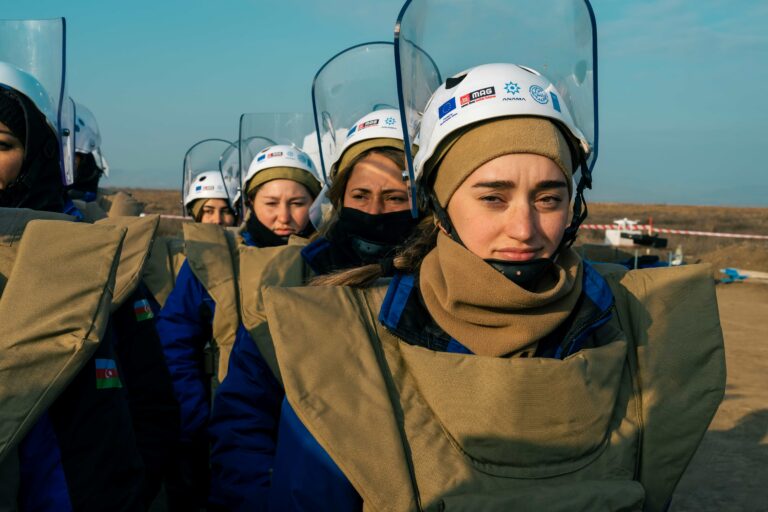
I have no regrets: the Azerbaijani women trained to clear mines
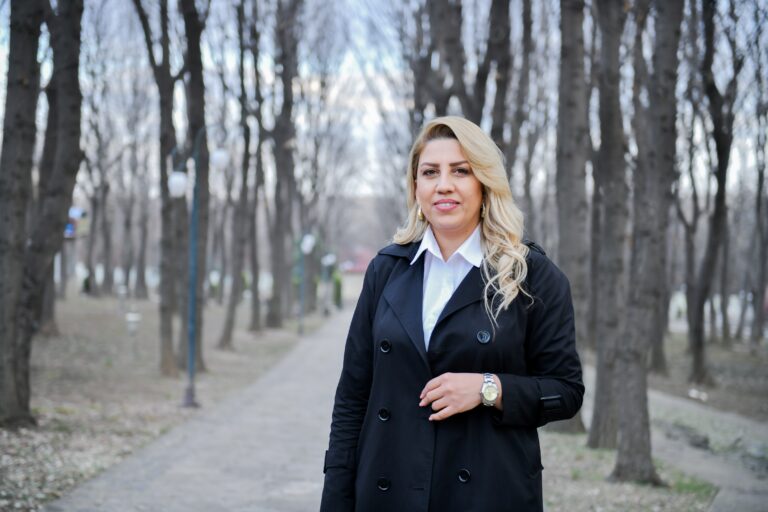
Turning a hobby into business: how Vusala Akhmadova from Tovuz helps women and children develop

Be one step ahead of a hacker: check simple cybersecurity tips!
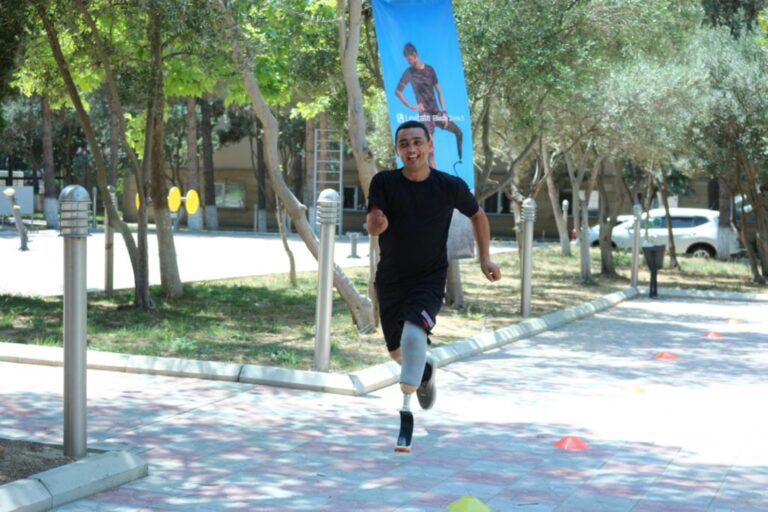
A chance for a better life: restoring justice for people with disabilities in Azerbaijan
More campaign pages:
Interested in the latest news and opportunities?
This website is managed by the EU-funded Regional Communication Programme for the Eastern Neighbourhood ('EU NEIGHBOURS east’), which complements and supports the communication of the Delegations of the European Union in the Eastern partner countries, and works under the guidance of the European Commission’s Directorate-General for Neighbourhood Policy and Enlargement Negotiations, and the European External Action Service. EU NEIGHBOURS east is implemented by a GOPA PACE-led consortium. It is part of the larger Neighbourhood Communication Programme (2020-2024) for the EU's Eastern and Southern Neighbourhood, which also includes 'EU NEIGHBOURS south’ project that runs the EU Neighbours portal.

The information on this site is subject to a Disclaimer and Protection of personal data. © European Union,








